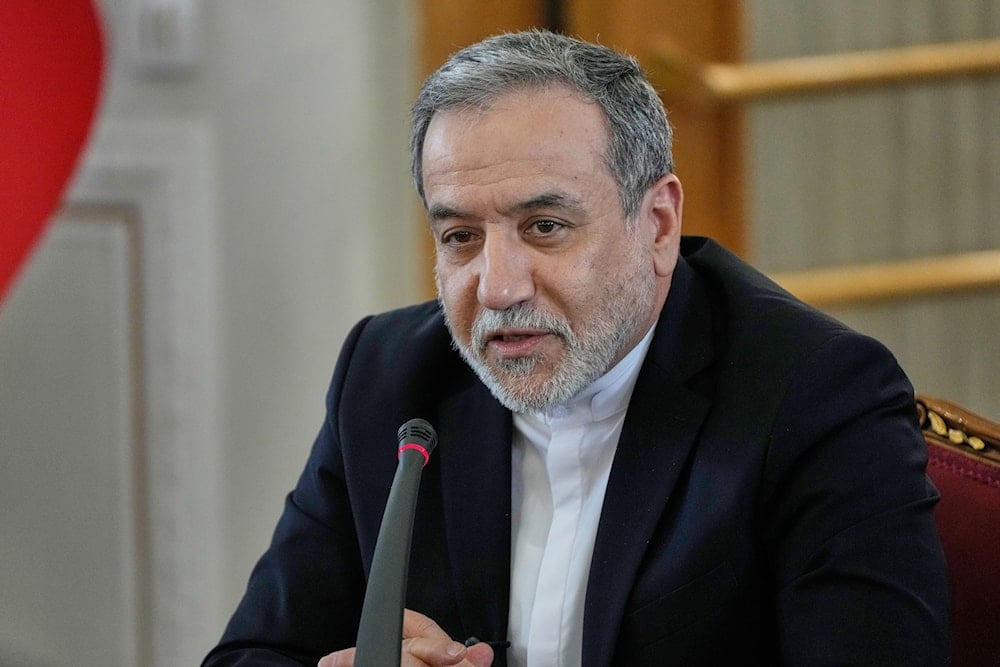Araghchi denies any contact with US envoy Witkoff over nuclear talks
Iranian official Abbas Araghchi denies claims that US envoy Steve Witkoff contacted him about restarting nuclear negotiations.
-

Iranian Foreign Minister Abbas Araghchi speaks in a meeting with ambassadors and representatives of foreign countries in Tehran, Iran, October 5, 2025. (AP)
Iranian Foreign Minister Abbas Araghchi firmly denied claims made by Kuwait’s Al-Jarida newspaper, published on October 6. The report suggested that US special envoy Steve Witkoff had communicated with Araghchi about the possibility of resuming nuclear negotiations between Washington and Tehran.
“The speculation by Kuwait’s Al-Jarida newspaper is incorrect, and I deny it. No contact has taken place,” the minister told reporters at the Iranian government headquarters' courtyard.
Witkoff’s role in Gaza mediation
Witkoff is currently in Sharm el-Sheikh, Egypt, leading a US delegation mediating ongoing ceasefire and prisoner exchange negotiations between Hamas and Israeli officials. These talks are also supported by Egypt and Qatar and are built around a 20-point peace plan proposed by US President Donald Trump.
The plan includes provisions for a ceasefire, the withdrawal of Israeli forces from Gaza, and the release of Palestinian prisoners and Israeli captives, among other clauses relating to governance in post-war Gaza.
Read more: Lists of prisoners to be released exchanged: Hamas on ceasefire talks
Stages of US–Iran negotiations
Earlier in April 2025, the United States and Iran engaged in limited diplomatic exchanges focused on reviving nuclear negotiations and regional security discussions. Tehran has consistently insisted that any return to talks requires Washington to meet several conditions that protect Iran's interests. Although both sides pointed to quick progress during these talks, the US maintained diktats that encroached on Iranian sovereignty, including a "zero enrichment policy" and limits on Iranian weapons programs.
The negotiations were interrupted following US-supported Israeli airstrikes against Iran, which Iranian officials cited as a primary reason for suspending discussions. These strikes escalated into direct American attacks on Iranian nuclear sites and an Iranian response that targeted the US-operated Al-Udeid Airbase in Qatar.
Read more: Iran’s Araghchi says Trump was close to new nuclear deal
US preconditions, Iranian response
Washington has reportedly set similar preconditions for resuming talks, including guarantees on Iran’s nuclear program and limits on Iran’s military capabilities. Tehran, however, maintains that these demands cannot override its sovereignty and that any resumption of negotiations requires an immediate halt to hostile actions against Iran and respect for its national security.
With the current stalemate, a combination of Israeli and American military strikes, continuous threats to the security of regional states, and US preconditions makes the timing of resumed talks uncertain.
Read more: US supplying 'Israel' with advanced refueling planes for fighter jets

 3 Min Read
3 Min Read








